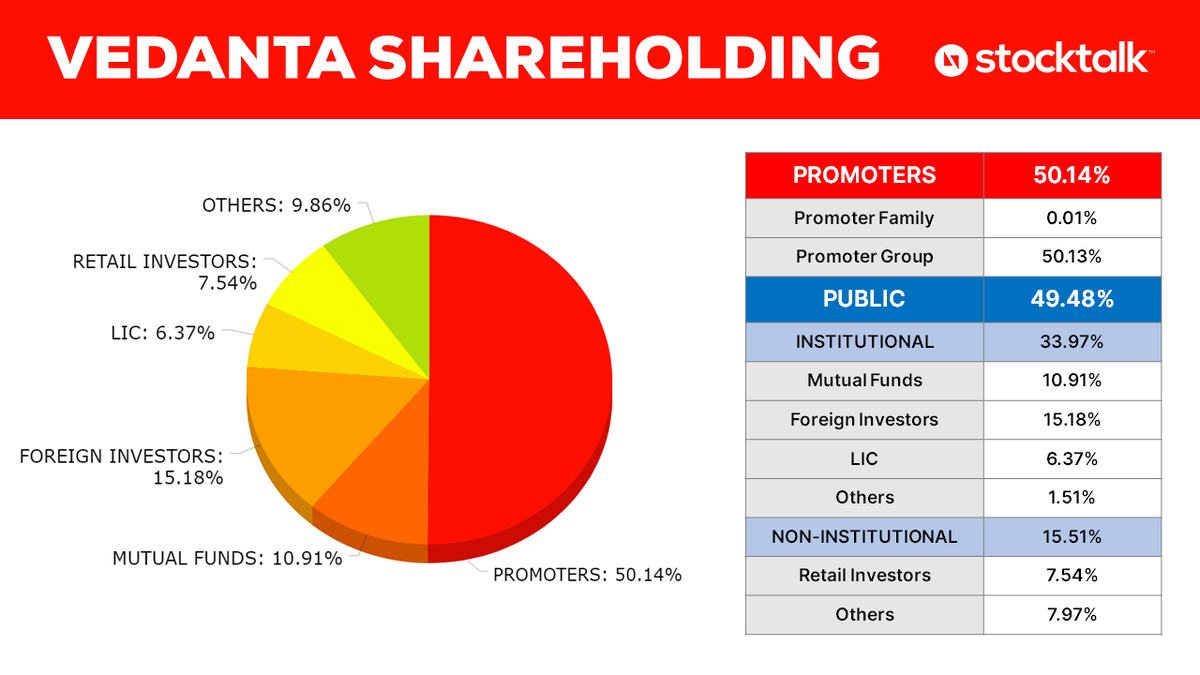SHAREHOLDING:
🔶 PROMOTERS: 50.14%
🔷 PUBLIC: 49.48%
- Mutual Funds: 11%
- Foreign Investors: 15%
- LIC: 6.5%
- Retail Investors: 7.5%
- Others: 10%
✅ 34% is held by institutional investors.
✅ Institutions will resist de-listing price.
(1/n) 👇

PROCESS:
🔶 Company makes a public announcement of proposal of de-listing (done).
🔶 Company seeks the following approvals:
- Approval from board of directors (via board meeting)
- Approval from shareholders (via special resolution)
(2/n) 👇
🔶 SPECIAL RESOLUTION:
For the de-listing to be approved, the voting results should be in the minimum ratio of 2:1 (for : against) of public shareholders.
🔶 Vedanta Public Shareholders: 49.48%
- Institutions: 34%
- Retail: 7.5%
- Others: 9%
(3/n) 👇
🔶 So as per the condition, for the de-listing to be approved, at least ~33% of the public shareholder should vote IN FAVOUR of the de-listing.
🔶 This will then fulfil the condition of 2:1 (33% : 16%)
(4/n) 👇
🔶 After getting both the approvals (board + shareholders), the company then makes an application to the stock exchanges for the de-listing.
🔶 It also appoints a merchant banker to conduct due-diligence of its books and derive an offer price.
(5/n) 👇
🔶 OFFER PRICE:
The offer price is derived upon by the method of book building.
The offer price shall be in reference to the book value of the stock.
🔶 FLOOR PRICE:
Floor price shall the average of 26 weeks trading price on stock exchanges.
(6/n) 👇
🔶 SHAREHOLDER RIGHTS:
After the offer price is declared, the shareholders will have the right to reject it.
The company will then have to make a counter-offer which shall not be less than the book value as certified by the merchant banker.
(7/n) 👇
🔶 FAILED DE-LISTING:
Neither the promoters nor the shareholders will have any obligations to accept the offers or counter-offers.
If the counter-offer stands rejected by any party then the de-listing procedure is considered as failed.
(8/n)



